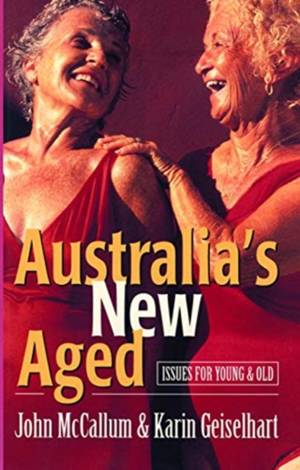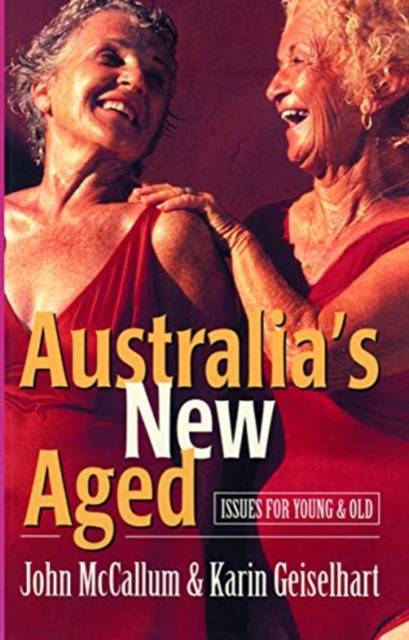
- Afhalen na 1 uur in een winkel met voorraad
- Gratis thuislevering in België vanaf € 30
- Ruim aanbod met 7 miljoen producten
- Afhalen na 1 uur in een winkel met voorraad
- Gratis thuislevering in België vanaf € 30
- Ruim aanbod met 7 miljoen producten
Zoeken
Omschrijving
The idea that our society is ageing is a popular source of gloomy predictions for the future. We see today's youth struggling in their mature years to pay for the masses of geriatric baby boomers whose productive years lie far behind.
Australia's New Aged shows that this belief is part reality and part myth. While there will be an increase in the proportion of aged people in the next 20 years, this is a temporary phenomenon and it is likely that tomorrow's elderly will quite differently from their parents. Australia's New Aged examines public policy for the aged in the context of an increasingly vocal and active elderly population and cutbacks to health and welfare spending. The authors argue that policy makers have become trapped in a 'social problem' approach to ageing that assumes the elderly are a homogeneous, disadvantaged group with common interests. They examine a range of cases and identify negative consequences of inappropriate assumptions in terms of structural blindness and brutality. They show that this approach is no longer viable and argue that both policy makers and the aged care industry will need to be more sensitive to diversity and more flexible than ever before. Australia's New Aged is essential reading for students, policy makers and anyone working with the aged. John McCallum is Professor of Public Health and Dean of the Faculty of Health at the University of Western Sydney, Macarthur and co-editor of Grey Policy (1990). Karin Geiselhart is a journalist previously employed by the Office for the Status of Women in Canberra.Specificaties
Betrokkenen
- Auteur(s):
- Uitgeverij:
Inhoud
- Aantal bladzijden:
- 158
- Taal:
- Engels
- Reeks:
Eigenschappen
- Productcode (EAN):
- 9780367717483
- Verschijningsdatum:
- 31/03/2021
- Uitvoering:
- Hardcover
- Formaat:
- Genaaid
- Afmetingen:
- 138 mm x 216 mm
- Gewicht:
- 449 g

Alleen bij Standaard Boekhandel
+ 364 punten op je klantenkaart van Standaard Boekhandel
Beoordelingen
We publiceren alleen reviews die voldoen aan de voorwaarden voor reviews. Bekijk onze voorwaarden voor reviews.











